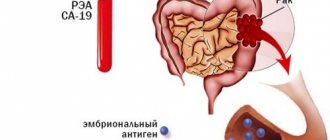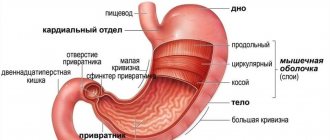Causes of a feeling of a full stomach and belching, heartburn, bloating
After eating, unpleasant symptoms often appear. Many of us suffer from it, regardless of gender, age, or health status. The causes of a feeling of a full stomach after eating, heartburn and bloating can be divided into two large groups:
- physiological;
- pathological.
Physiological reasons:
- The most common is a large amount of junk food that the patient eats in one sitting without thinking. These are fatty meats, fried foods, fast food, cakes, chocolate, fresh pastries. The digestion process is disrupted, and the liver and pancreas receive a huge load.
- Lactose intolerance is an individual intolerance to milk protein (a rare phenomenon, but it is often the cause of a feeling of a full stomach).
- Drinking alcoholic beverages (especially cocktails that mix strong drinks with carbonated sweet liquids).
- Allergic reactions to certain foods.
Pathological reasons:
- Gastritis, in which the stomach lining becomes inflamed.
- With an ulcer, the intestinal and stomach mucosa not only becomes inflamed, but becomes covered with small scars, which can eventually turn into ruptures and lead to internal bleeding.
- Chronic pancreatitis (inflammation of the pancreas tissue) leads not only to a feeling of a full stomach, but also to excruciating pain in the left hypochondrium.
- Cholecystitis makes you experience a feeling of heaviness, aching pain in the abdominal area, and heartburn every time after eating.
Physiological reasons
A feeling of rapid filling of the stomach, accompanied by distension in the upper abdomen, can occur in healthy people. This passes quickly and does not pose any harm to health.
The main reasons causing rapid satiety and stomach discomfort:
- Very often, a feeling of heaviness in the stomach occurs after eating a large amount of foods that are called heavy - meat, mushrooms, eggs. Eating at night in combination with alcohol aggravates the situation. The stomach cannot cope with a large number of products of different composition; they enter the duodenum almost unchanged. The normal process of digesting food is disrupted.
- The digestive system of some people is not able to break down lactose (milk sugar), remaining unchanged, lactose in the intestines begins to ferment, causing increased gas formation and bloating.
- Allergy to certain foods. It also manifests itself as heaviness and distension in the stomach.
- The feeling of fullness in the stomach is familiar to pregnant women in the last stages of pregnancy. The internal organs are in a compressed state, and even a small amount of food taken is perceived inadequately by the body. Heartburn, belching, and nausea may bother you. After childbirth, such symptoms disappear.
- A similar feeling appears in heavy smokers due to constant irritation of the mucous membrane of the digestive organs by nicotine.
- Big fans of drinks with ice or gas experience similar discomfort.
- A heavy feeling in the stomach sometimes accompanies tourists on trips to exotic countries due to a sudden change in diet and the desire to indulge in the delicacies of local cuisine.
- Accelerated satiety accompanies functional disorders of the digestive system in patients experiencing serious psychological stress or deep negative experiences. This condition may be accompanied by symptoms of functional irritable bowel dyspepsia due to reflex dysmotility or increased sensitivity of the gastric nervous system to distension. The patient is bothered by pain, heaviness, periodically accompanied by belching and vomiting.
In the above cases, heaviness in the stomach is not a symptom of a serious disease of the internal organs. But when they appear, and even more so frequently recur, you need to seriously analyze your lifestyle and diet. Otherwise, if you do not give up unhealthy habits, you can get persistent disorders of the digestive organs, which over time will develop into serious diseases - gastritis, ulcers, pancreatitis or cancer.
Correction of nutrition as a way to combat the feeling of a full stomach
Nutrition plays a decisive role in the treatment of such conditions. A healthy diet is the best treatment for the feeling of a full stomach (the reasons do not play a big role here). It is worth knowing your diagnosis, since the principles of nutrition for pancreatitis and gastritis will be slightly different. The reasons for the feeling of a full stomach and belching most often lie in poor nutrition. So we'll have to change it completely.
Here are the basic nutrition rules that will help get rid of the feeling of a full stomach:
- adhere to a fractional separate diet (do not mix carbohydrates with fats), the total weight of food per meal is no more than 200 g;
- try to eliminate dairy products completely for a while; if the problem is lactose intolerance, then this step will be beneficial;
- give up fatty meat (in particular pork);
- give up mayonnaise, ketchup and other factory-made sauces;
- replace sweet carbonated drinks with homemade fruit drinks and compotes;
- give up fried foods (french fries, scrambled eggs in oil);
- stop drinking alcoholic beverages.
Dyspepsia, or “lazy stomach”
Before we find out what “lazy stomach syndrome” or dyspepsia is, let’s try to check whether such a diagnosis can be made for you. To do this, answer several questions, giving yourself 1 point for each “yes” answer and 0 points for each “no” answer.
1. Do you feel heaviness in your stomach, especially after eating?
2. Do you complain of pain and discomfort in the epigastric region after eating?
3. Do you experience early satiety or fullness while eating?
4. Are you familiar with bloating?
5. Are you bothered by the feeling of nausea, especially after eating?
Now add up your points. 0 points: You eat right, you are not at risk of dyspepsia. 1 point: You are not far from a healthy diet, but dyspeptic symptoms sometimes still make themselves felt; The diet needs some adjustment. 2-4 points: to get rid of dyspepsia, you need to radically reconsider your diet and diet. 5 points: you probably eat poorly and have severe dyspepsia; You should not put off visiting a gastroenterologist.
So, if according to the test results you are not “zero”, then we can say that nothing dyspeptic is alien to you.
What is dyspepsia, or “lazy stomach”? Dyspepsia is a complex of disorders that is accompanied by discomfort or pain in the upper abdomen, a feeling of early satiety, nausea, vomiting and bloating. The most common dyspepsia is called functional dyspepsia: it occurs due to a violation of the motor function of the stomach. This is the well-known “lazy stomach syndrome”. It is known that for the normal absorption of food, the ability of the stomach to contract rhythmically and in a coordinated manner, crush food, process it and move it further is extremely important. With dyspepsia, the stomach is “too lazy” to contract. Food stays in it for a long time, which causes discomfort. How does a “lazy stomach” manifest itself? The symptoms of dyspepsia are literally painfully familiar to everyone. The main ones are: heaviness in the stomach, bloating, nausea. These manifestations of dyspepsia may or may not be related to food intake. Dyspepsia is also characterized by a feeling of fullness in the epigastric region after eating and a feeling of early satiety. If you are familiar with the above symptoms, and no serious disease of the gastrointestinal tract (for example, peptic ulcer) has been detected, then you are susceptible to functional dyspepsia and have a “lazy stomach”. How common is a lazy stomach? People most often suffering from dyspepsia cannot be distinguished by gender, age or social status. Studies have shown that the percentage of the population with symptoms of heaviness in the stomach, bloating, and nausea increases in those countries where the standard of living is lower. In general, it is not for nothing that the frequency of gastroenterological diseases is considered a kind of measure of the well-being of society. Russia, unfortunately, has unfavorable statistics in this regard. Every third person is susceptible to dyspeptic disorders to one degree or another. In some people, manifestations of a “lazy stomach” occur frequently: usually 1-2 times a week or more, in others - from time to time, usually after errors in diet or alcohol abuse. What are the causes of a “lazy stomach”? The causes and mechanisms that contribute to the development of dyspepsia are still not well understood. Thus, among people with dyspepsia there is no greater prevalence of bad habits (smoking, drinking alcoholic beverages, tea and coffee) and taking medications compared to patients suffering from various gastroenterological diseases. Meanwhile, some researchers confirm that smoking increases the risk of developing dyspepsia by more than two times. The cause of heaviness in the stomach, bloating, and nausea can be either functional dyspepsia, or banal overeating or neuropsychic stress associated with any life events, and a number of other factors. The results of the studies prove that the main reason for the above complaints lies in the disruption of the motor activity of the stomach and duodenum. How to minimize the risk of dyspepsia? To prevent exacerbations of “lazy stomach” symptoms, please follow the following recommendations:
- Chew your food thoroughly.
- Take food in small portions and regularly - every day at the same time, then your stomach will be ready to eat food.
- Limit your consumption of animal fats (butter, fatty meats, etc.), carbonated drinks, coffee, chocolate.
- Avoid becoming overweight.
- Limit smoking and alcohol consumption.
- The last meal should be no later than 2 hours before bedtime.
- Avoid nervous tension and physical overload.
However, these rules are not a panacea at all. Moreover, unfortunately, not everyone and not always can adhere to them... Vladimir VASILENKO, gastroenterologist (from the Recommendations for self-monitoring of digestive problems of the Russian Gastroenterological Association)
Which doctor should I see and what tests should I undergo?
In order to find out the exact reasons for the feeling of a full stomach, you should undergo a comprehensive examination. You can use the free medical examination service for the population. If this is not possible, then you need to take a coupon for an appointment with a local therapist.
This general practitioner will prescribe standard tests: urine, stool, blood biochemistry. The results of these studies will help to create an overall clinical picture of the patient’s health. After this, it will be clear in which direction to proceed next. The therapist can issue coupons for consultation with an endocrinologist, gastroenterologist, immunologist, or hepatologist.
These are specialists with a narrow focus. They, in turn, will write out directions for examining organs for ultrasound and MRI. You may have to take a picture of the gastrointestinal tract using radiography, or undergo an FGDS or endoscopy procedure.
How to identify the problem?
The doctor examines the patient by palpation of the abdomen.
A feeling of fullness in the stomach without food is not a normal condition and requires timely examination. At an appointment with a gastroenterologist, a person should talk about his diet, bad habits, and disturbing symptoms. The doctor will palpate the abdomen, then prescribe a comprehensive diagnosis, including the following procedures:
- general and biochemical blood tests;
- analysis for the presence of the bacterium Helicobacter pylori;
- diagnostic examination of the abdominal organs using ultrasound;
- fibroesophagogastroduodenoscopy, through which the stomach, duodenum, and intestines are examined using a probe.
If a feeling of fullness due to a cancerous tumor is suspected, magnetic resonance imaging is additionally performed.
Types of drug treatment
All diseases of the gastrointestinal tract have similar symptoms. So an accurate diagnosis can only be found after examination and test results.
Depending on the diagnosis, medications of various classes will be prescribed:
- prokinetics - to treat heaviness and bloating;
- pancreatic enzymes - drugs for rapid digestion;
- antacids - for heaviness in the stomach;
- antispasmodics - for pain and bloating;
- antidiarrheal and antiemetic drugs.
In addition, dietary adjustments and a therapeutic diet will be required.
Treatment
Diseases of the digestive system occur with similar symptoms, and the treatment in each described case is different. Only a doctor can understand the situation after an examination. And he will fight not with the symptoms of the disease, but with the cause that caused them.
If you know why the unpleasant condition occurred or this happened for the first time, you can use some remedies that will not cause harm. However, if the condition worsens, you cannot do without the help of a specialist.
Medicines prescribed to eliminate stomach discomfort are aimed at eliminating symptoms, restoring the digestive and motor function of the stomach and the patient’s normal well-being.
Prokinetics for the treatment of heaviness and bloating
This class of drugs stimulates gastric motility function. Thanks to this action, the stagnant food passes into the intestines, and the constant feeling of a full stomach leaves the patient.
- "Ganaton" gently stimulates the motility of the gastrointestinal tract and has virtually no contraindications (except for individual intolerance to the components).
- Motilium is sold in tablet form and as a solution, one of the most popular drugs among prokinetics.
- “Gastrikumel” is similar in principle to “Ganaton”.
These drugs are quite safe and can be purchased at any pharmacy without a special prescription from a doctor. Of the minuses: in some patients they can provoke diarrhea, so you need to start taking them with minimal dosages.
Feeling of discomfort in the stomach
Unpleasant sensations manifest themselves individually, but there are common symptoms:
- nagging pain or burning in the upper abdomen;
- heaviness;
- feeling of quick satiety;
- nausea or vomiting;
- heartburn;
- flatulence or increased gas production;
- feeling of a full stomach.
The presence of even one of the symptoms indicates that not everything is in order with the digestive organs.
Discomfort in the stomach is a frequent companion to the modern rhythm of life and poor eating habits. The main negative factors include:
- Stress. Constant rush, nerves and stressful situations lead to disruptions in the functioning of the gastrointestinal tract;
- Tobacco. Cigarettes have a negative effect on the mucous membrane of internal organs involved in the digestion process;
- Alcohol. With regular consumption of alcoholic beverages, you may encounter not only individual symptoms of stomach discomfort, but also serious diseases;
- Violation of nutrition rules: snacking “on the run”, eating low-quality foods, overeating, abuse of fast food, predominance of fatty and fried foods in the diet, violation of heat treatment rules, lack of a diet;
- Lactose intolerance. It is common to many, but is especially common in infants and older people. The fact is that with age, the body secretes less and less enzymes that are responsible for processing lactose (this is a disaccharide contained in milk). Due to the inability to break down sugar in the stomach, fermentation processes begin and gas is released in large quantities. Which is the main cause of discomfort.
Frequent consumption of too hot and strong coffee or tea, or highly carbonated drinks can also lead to stomach problems.
If you do not follow the doctor’s instructions and do not confront the problem yourself, serious diseases, and even oncology, can develop.
Attention! A frequent feeling of discomfort in the stomach may indicate the progression of the disease. Long-term and repeated episodes may indicate the development of diseases such as:
- gastritis;
- esophagitis;
- cholelithiasis;
- pancreatitis (inflammatory processes in the pancreas);
- peptic ulcer;
- tumor formation in the intestines and stomach.
A common manifestation of discomfort is a feeling of a full stomach.
Pancreatic enzymes - drugs for rapid digestion
These are analogues of enzymes produced by the pancreas. Without these substances, food cannot be digested; it will sit in the stomach for hours and rot. As a result, the patient will experience pain, weakness, bloating, and belching with a hydrogen sulfide taste.
Depending on the stage of development of pancreatitis, the doctor may prescribe various medications.
The most popular enzyme substitute is Pancreatin (Mezim). This drug is known to almost all people over forty years of age. It is cheap and has minimal side effects. You can buy it at a pharmacy without a prescription. People often take a couple of Pancreatin tablets as a preventive measure before a meal to support the healthy functioning of the gastrointestinal tract.
If you feel your stomach is full and are belching air with the smell of hydrogen sulfide, you should try Festal. This is a powerful enzyme that will promote rapid digestion of food. You can use it as a preventative against digestive problems before feasts.
Feeling overeated after a small meal: reasons
The problem is common, especially for residents of the former post-Soviet space. This is due to the peculiarities of the mentality and financial problems during perestroika. People who remember this time tend to overeat and want to try everything during the holiday. For such purposes, most people purchase enzymes that improve the digestion of food and relieve heaviness in the stomach. However, it happens that heaviness is observed even after a small amount of food.
Feeling of overeating after a small meal, reasons:
- Visiting exotic countries and getting used to unusual cuisine. In China and Vietnam, hot spices and unusual ingredients are introduced into food. A person living in a certain region develops its own microflora, designed to digest frequently consumed food. If a large number of unusual foods appear in the diet, the stomach may protest, and heaviness may be felt after eating.
- Frequent flights, naps during the day. The digestive organs are designed to work during the daytime and must rest at night. Some people work around the clock, or in shifts, and therefore sleep shifts to the day, and night becomes working time. You need to wait a little while the body readjusts. Try to reduce the amount of food you eat at night, replacing heavy foods with light ones. The ideal option is stewed vegetables.
Antacids - drugs for heaviness in the abdomen
These medications envelop the gastric mucosa with a protective film. They help alleviate the patient’s condition with chronic cholecystitis, hepatitis of various origins, gastritis, peptic ulcers and a number of other serious diseases of the abdominal organs. This action effectively prevents the feeling of a full stomach and belching, heartburn, and bloating.
Here is a list of the most popular antacids:
- "Phosphalugel";
- "Renny";
- "Omeprazole";
- "Smecta".
Few people know that the drug Omeprazole is an analogue of the expensive foreign drug Omez. They have the same active ingredient, and the principle of action is similar. If the first drug costs around fifty rubles, then its foreign analogue costs almost four hundred. Omeprazole is effective for a number of diseases, including gastritis, peptic ulcers, and erosions. A cheap and effective remedy that can be used both to prevent diseases of the gastrointestinal tract and to treat existing problems.
How to get rid of the feeling of overeating: list of drugs
To get rid of heaviness in the abdomen, determine the cause of the pathology. As stated above, there are many reasons for this symptom. If you work against the symptom itself, the cause will not go away and will return over time. The only correct solution is to establish the cause and deal with it. There are several options for medications that are used to treat heaviness in the abdomen.
How to get rid of the feeling of overeating, list of drugs:
- Antispasmodics . Prescribed if the feeling of fullness is provoked by a spasm in the epigastric zone. These include No-shpa, Spazmalgon, Ketanov.
- Preparations that contain pancreatic enzymes . These include Creon, Pancreatin. They are prescribed if severity is caused by a lack of enzymes. Pancreatitis may be indicated by nagging pain on the left side.
- Enterosorbents and drugs that absorb toxic substances will be effective in case of poisoning. If after eating cottage cheese, yogurt, or a small amount of meat product you experience nausea, vomiting, or a feeling of fullness in the stomach, it makes sense to use Enterosgel, Smecta, or Atoxil.
- Drugs that stimulate the flow of bile and improve liver function. These include hepatoprotectors: Gepabene, Karsil, Daryl. They help restore liver cells if a person abuses fatty foods. If there are disturbances in the functioning of the liver, along with overeating, a change in skin color is observed, it becomes yellow, with a brown tint. The color of the white of the eyeball may change.
- Medicines to stimulate the stomach. Medicines stimulate the stomach, increasing the number of contractions, which leads to the movement of food in the stomach, preventing stagnation. These include Domrid, Domidon, Ganaton.
Heavy food
Antispasmodics for pain and bloating
If a patient experiences spasms of the smooth muscles of the gastrointestinal tract, it is worth stopping them with antispasmodics. These are effective painkillers that quickly eliminate abdominal pain.
Here are the most popular ones:
- "No-Shpa";
- "Meteospasmil";
- "Duspatalin."
Few people know that the antispasmodic “No-Shpa” has a cheap domestically produced analogue called “Drotaverine”. These drugs have the same active ingredient and the same principle of action, but the cost differs several times. These medications can be used for the feeling of a full stomach during pregnancy, since they have practically no contraindications. Their use in children and adolescents is also permitted.
Constant feeling of overeating on an empty stomach: reasons
Pay attention to how you feel early in the morning. If heaviness is observed on an empty stomach, you have not yet had time to eat, you should consult a doctor. This happens due to improper behavior and non-compliance with food consumption rules.
Constant feeling of overeating on an empty stomach, reasons:
- Eating heavy meals at night . As mentioned above, this happens if a person works at night. Make it a habit to eat light foods at night. A glass of kefir or yogurt without filler will do. You can snack on an apple and a small amount of stewed vegetables. You should not consume large amounts of carbohydrates and proteins at night.
- Sweet rolls, yeast baked goods, bread, and confectionery products have a negative impact not only on the condition of the gastrointestinal tract, but also on weight. Completely avoid taking these products at night. Even a small amount of food at night can lead to heaviness immediately upon waking. At night the stomach works worse than during the day. Less enzymes may be produced. Especially if a person does not move and goes to bed. Scientists have proven that movement after eating stimulates peristalsis of the stomach and intestines, and also speeds up the digestion of food.
- At night, the body takes a horizontal position, as a result of which the work of all organs and systems slows down. The stomach produces less hydrochloric acid, and the pancreas also sleeps. Therefore, products can remain in the stomach almost all night and succumb to fermentation processes. The next morning, a person experiences bloating, nausea, and heaviness in the stomach. It will go away over time when most of the food has been digested. Do not put such stress on your body.
- Drinking large amounts of alcohol at night. Happens after feasts. Early in the morning, after waking up, due to the decomposition of alcohol into acetaldehyde, there is a heaviness and unpleasant sensation in the stomach. Some of the food is in an undigested state and remains in the stomach. It is necessary to alleviate the condition by taking sorbents that will absorb the breakdown products of alcohol. These include Enterosgel, Atoxil, or activated carbon, Smecta. Almost any absorber will do.
Abdominal pain
Antidiarrheal and antiemetic drugs
If the malaise is accompanied by diarrhea, it is worth adding Smecta, Enterosgel, and activated carbon-based products to therapy. Such conditions are usually accompanied by dehydration, so it would not hurt to drink Regidron in parallel to restore the water-salt balance. The loss of electrolytes has a very negative impact on your overall health and can worsen digestive problems.
Feeling of a full stomach after eating accompanied by nausea and vomiting? Antiemetic drugs will come to the rescue. For example, “Cerucal”, “Motilium”. If nausea is constantly felt, you should consult a doctor; most often this is a symptom of serious chronic diseases of the internal organs.
What the stomach may not like
Poor nutrition or overeating is the first and main reason that causes heaviness in the stomach after eating. For example, during the New Year holidays you can most often hear complaints about discomfort that replaces satiety.
The second most common cause of stomach discomfort after eating is poor chewing. Very often people are in a hurry while eating, and many even prefer to combine it with an exciting conversation with their dining companion. And instead of thoroughly chewed food, too large fragments of food and a large amount of air enter the stomach, which causes discomfort and heaviness after eating.
Severe stress can further complicate the process of digesting food. Due to anxiety, the body is distracted from the normal performance of natural functions, concentrating all its forces on resisting a real or imaginary threat.
We can also talk about situational heaviness in the stomach after eating. It occurs due to the abuse of certain types of food (whole milk products, baked goods, sweets, fatty foods, etc.).
How to help yourself with heaviness in the stomach?
Traditional recipes and methods
Treatment with traditional methods will never lose its relevance. These recipes are simple, the ingredients for them are found in almost every home. In addition, they cause absolutely no side effects, except in cases of individual allergic reactions.
- A decoction based on elecampane root. Pour boiling water over a tablespoon of chopped dry root and let it brew. You can drink it as a separate drink, for example, replace tea and coffee with this decoction that is beneficial for the stomach.
- Propolis and sea buckthorn oil. Propolis should be poured with boiling water and allowed to brew for half an hour. The proportions are as follows: a tablespoon of propolis per glass of water. Before use, add a few drops of sea buckthorn oil. Take on an empty stomach two to three times a day. In some cases, this recipe leads to a slight laxative effect.
- Chamomile. Famous for its anti-inflammatory and anesthetic properties. The chamomile infusion is prepared as follows: pour a tablespoon of dried crushed flowers with a glass of boiling water and let it brew for an hour. Take the resulting infusion 30 ml before each meal.
- Aloe and honey. You should select the fleshy aloe leaves and grind them in a blender (or grate them on a fine grater). Mix in equal proportions with fresh flower honey. Take the resulting suspension one teaspoon before each meal.
Causes of nausea and heaviness in the stomach
Similar symptoms can occur not only after eating food, but also on an empty stomach. The causes of heaviness in the stomach and nausea are divided into several groups. A similar condition after eating food may occur due to:
- poor nutrition and quick snacks;
- consumption of large amounts of fats and spicy foods;
- overeating;
- consuming large amounts of food at one time;
- consumption of incompatible or long-digesting foods.
- taking certain medications;
- alcohol abuse and smoking;
- consumption of sugary carbonated drinks;
- disruption of the functioning of certain organs;
- stressful situations.
If unpleasant symptoms occur, you should definitely consult a doctor, as this may be a sign of dangerous dysfunctions in the functioning of many organs.
Prevention and medical advice
The feeling of a full stomach and belching will leave the patient for many years if he adheres to the following recommendations:
- completely avoid carbonated, sweet and alcoholic drinks;
- review your diet and stick to split meals, never overeat;
- pass the necessary tests and make sure there are no chronic diseases (and if they are present, strictly follow the treatment regimen with special medications);
- observe the rules of personal hygiene and make sure there is no parasitic infestation;
- attend medical examinations of the population annually so as not to miss the onset of serious diseases.
Anyone can follow these simple tips.
Treatment of stomach discomfort
Depending on the presence or absence of the disease, its stage and severity, the following types of treatment may be used:
- prescribing a special diet;
- use of medicines.
If the problem is not associated with serious pathologies and is not related to organ dysfunction, enzyme preparations may be prescribed.
The drug Creon ® is an enzyme preparation of the latest generation. It improves digestive processes in adults and children, and thereby significantly reduces the symptoms of pancreatic enzyme deficiency, including abdominal pain and flatulence. The enzymes included in the drug facilitate the digestion of food and promote better absorption of nutrients (proteins, fats, carbohydrates).











